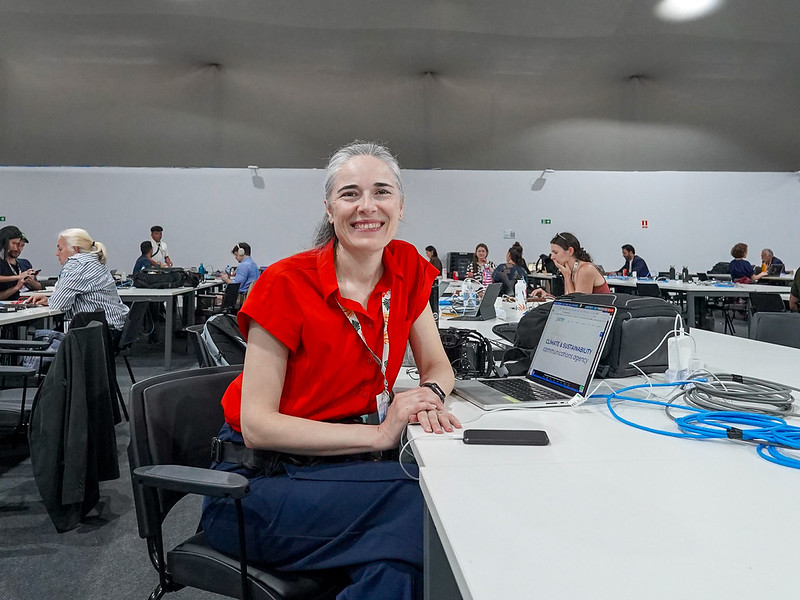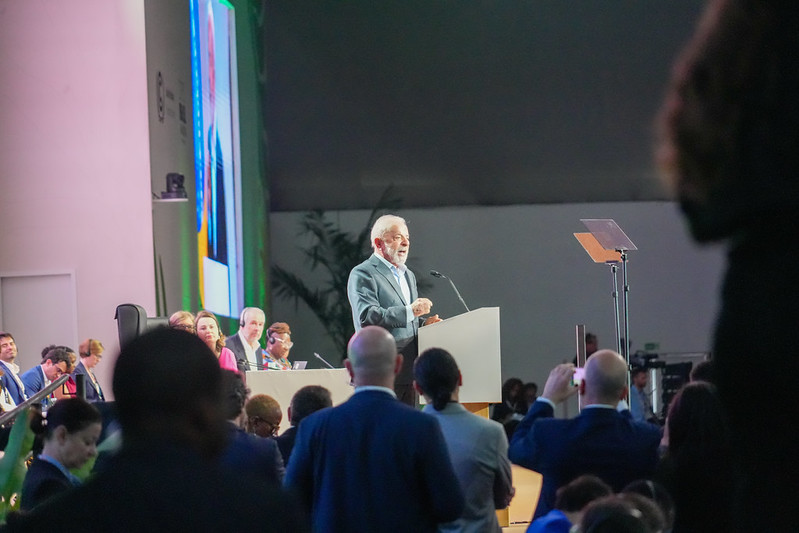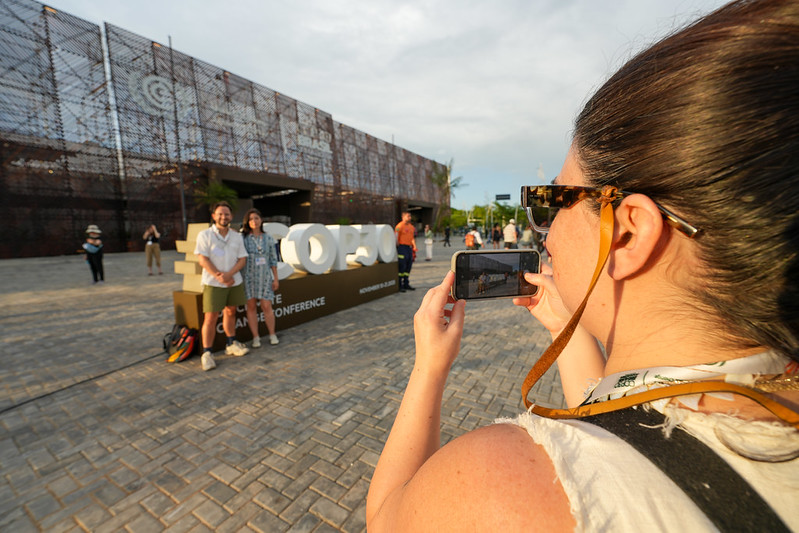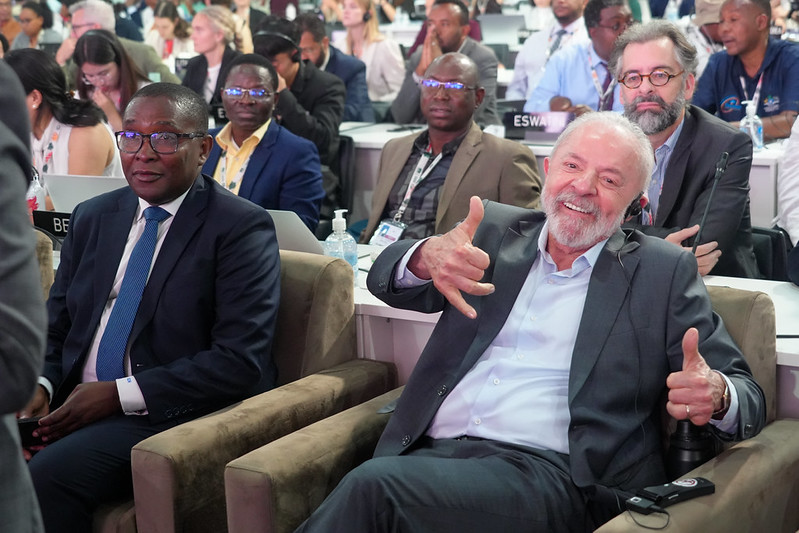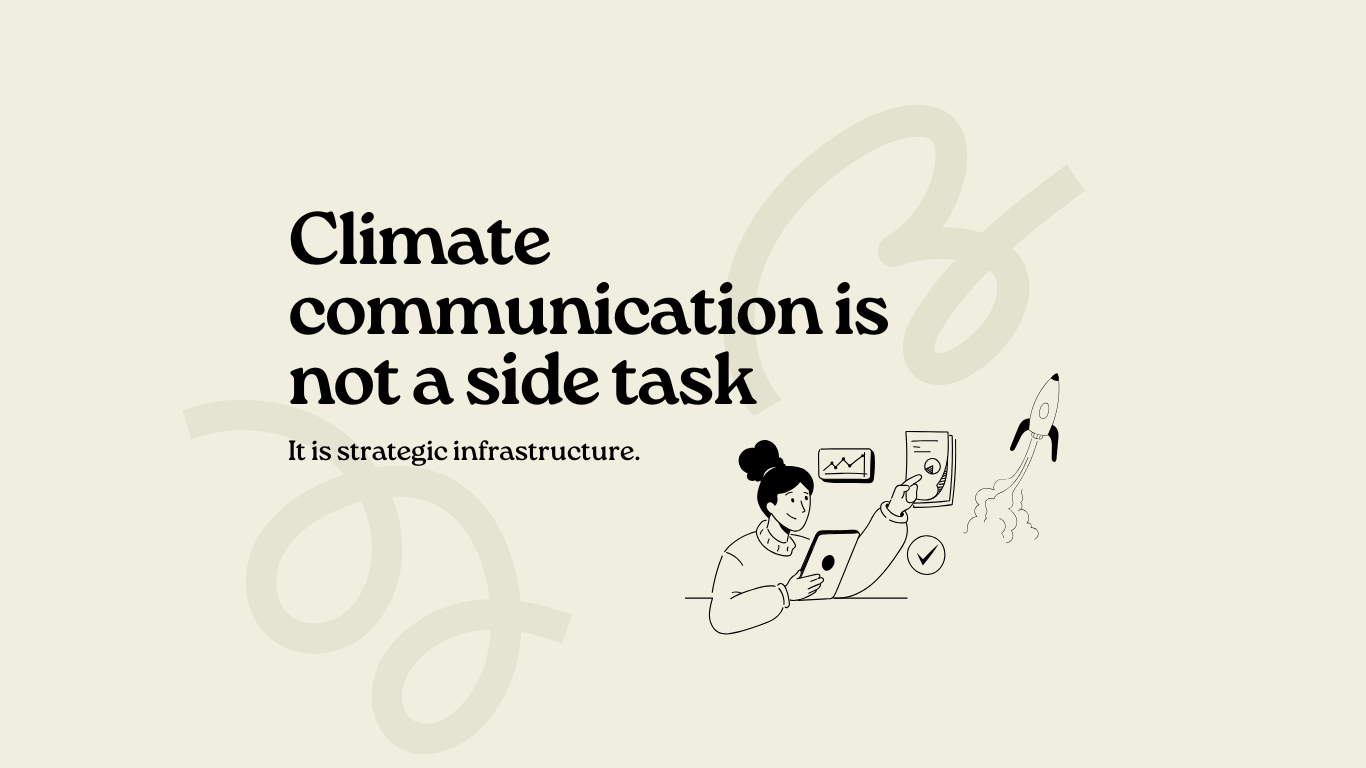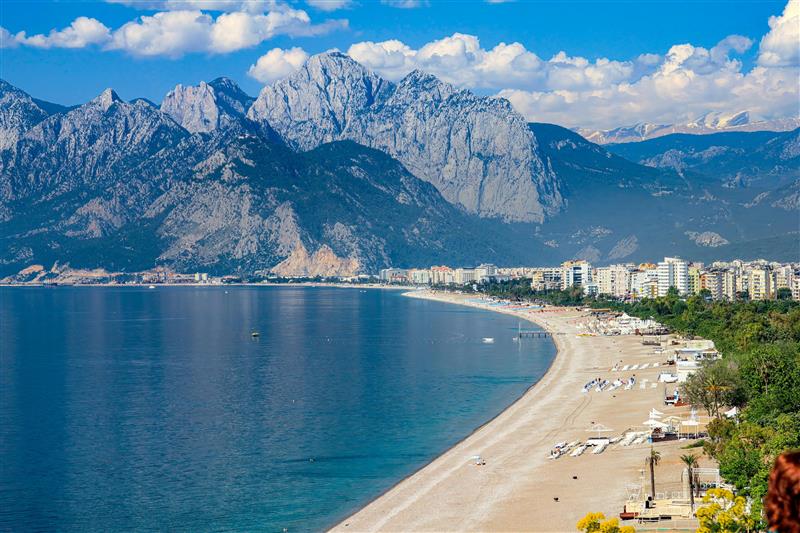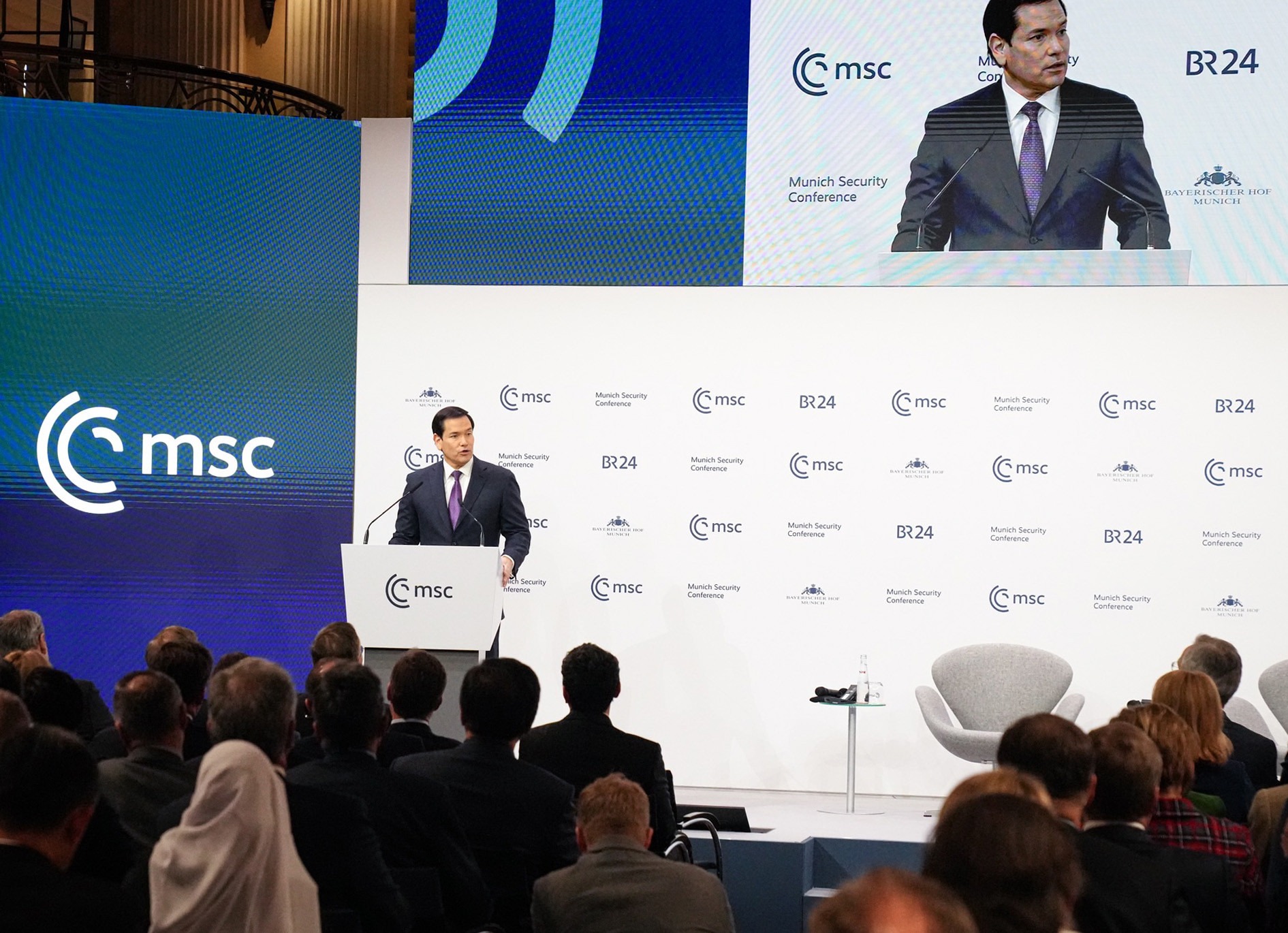Governments, scientists, businesses and civil society come together to discuss the climate action our planet needs
COP30, which is being held in Belém (Brazil) until 21 November, is one of the most important events in global climate action, bringing together more than 50,000 participants from almost 200 countries and representatives from more than 170 governments.
This forum reviews the international commitments arising from the Paris Agreement (2015) and sets new targets for tackling climate change.
The opening ceremony was led by the president of the host country, Luiz Inácio Lula da Silva, who defended the Paris Agreement and highlighted the need to set more ambitious climate targets, while calling for a reduction in dependence on fossil fuels. ‘We are moving in the right direction, but at an inadequate speed,’ said the president, before urging the audience to ‘overcome dependence on fossil fuels.’
In a context marked by an increase in climate change denial rhetoric, Lula stressed the urgency of strengthening science and action: ‘It is time to inflict another defeat on the deniers,’ emphasising that the fight for resilience and adaptation requires not only resources and technology, but also the clarity and scientific consensus necessary to drive effective decisions at the global level.
This article reviews what COP30 is, its objectives, the main areas of negotiation, the urgency of developing resilience and adaptation, and the role of financing.
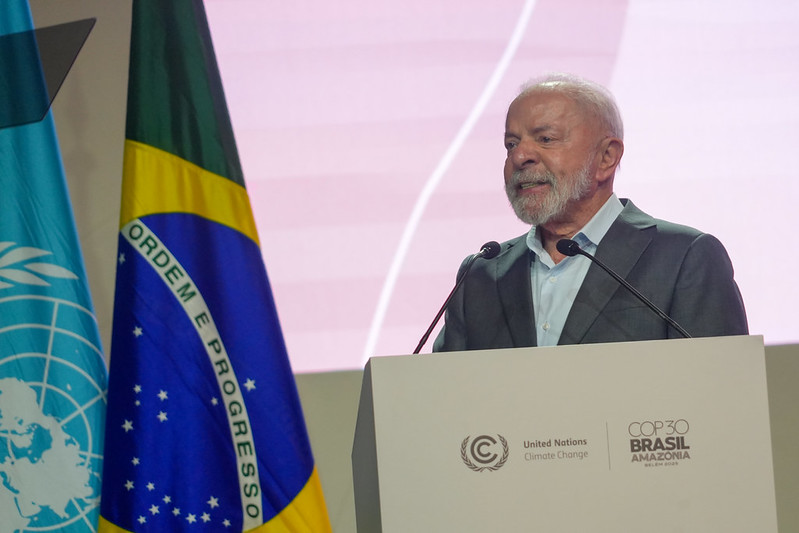
What is COP30
COP30 is the 30th Conference of the Parties to the United Nations Framework Convention on Climate Change (UNFCCC). It is the annual forum where the countries that are part of the UN climate treaty meet to assess progress, renew commitments and agree on new actions to address the climate crisis.
This year’s edition, which takes place on the doorstep of the Amazon, is particularly significant. On the one hand, because it marks the tenth anniversary of the Paris Agreement; on the other, because the impacts of climate change are already a palpable reality throughout the world, especially in Latin America.
Objectives and areas of negotiation
The main objectives of COP30 include:
- Consolidating a roadmap to comply with the Paris Agreement, which seeks to limit the increase in global average temperature to 1.5 °C.
- Advancing towards a climate finance system that responds to the needs of the most vulnerable countries. At COP 29 in Baku, a progressive target of $1.3 trillion per year until 2035 was proposed, of which only $300 billion has been achieved.
- Ensure climate justice by recognising the historical responsibilities of developed countries and supporting the transition of emerging economies.
- Strengthen adaptation and resilience strategies in the face of increasingly frequent climate impacts such as storms, floods and forest fires.
Among the most contentious points in the negotiations are financing, a just energy transition and the distribution of resources to the countries most exposed to the climate crisis.
Resilience and adaptation, a growing imperative
During the second day of COP30, the ‘growing need to develop resilience to storms, floods and fires’ was highlighted. Adaptation is no longer an optional measure: it is an essential pillar for ensuring that communities, ecosystems and economies can withstand the current and future impacts of climate change.
Investments are needed in infrastructure, ecosystem restoration, sustainable urban planning and environmental education. Resilience is not only about resistance, but also about the ability to transform social and economic systems to make them more equitable and sustainable.
Recent extreme events show the high cost of climate change: in Vietnam, typhoons Kalmaegi and Bualoi caused damage amounting to almost $736 million, while the Philippines is still assessing the effects of super typhoon Fung-wong. In Jamaica, hurricane Melissa caused losses estimated at $7 billion, around a third of the country’s GDP.
Financing: essential for meeting climate goals
Financing is one of the central themes of COP30. Since the start of the summit, discussions have been marked by the need to secure the resources that will enable developing countries, in particular, to achieve their emission reduction and adaptation goals.
Discussions revolve around how to mobilise $1.3 trillion annually with public but above all private capital, as well as its distribution and transparency in the use of funds. Developing countries are calling for resources to be made available quickly and without conditions, while donors insist on the need to mobilise private capital and ensure efficiency and transparency.
Without adequate and predictable financing, the commitments of the Paris Agreement and the decisions taken at the COP risk remaining symbolic declarations.
‘If those who wage war were at COP30, it would be much cheaper to set aside $1.3 trillion annually to end the climate problem than the $2.7 trillion spent on war last year,’ Lula said.
Why COP30 matters
COP30 matters because:
- It marks a turning point, as it is the tenth anniversary of the Paris Agreement.
- It allows for an assessment of the gap between commitments and actual actions.
- It strengthens international cooperation and climate solidarity.
- It more clearly links mitigation and adaptation, understanding that both are necessary.
- It sets the course for climate policy for the next decade.

COP30 in the Amazon: a key setting
Holding COP30 in Belém, at the gateway to the Amazon, has very significant symbolic and strategic meaning. The Amazon is not only the largest tropical forest in the world, but also one of the planet’s main carbon sinks, essential for regulating the global climate. Its conservation is key to curbing global warming, protecting biodiversity and ensuring the resilience of local communities in the face of extreme events. Furthermore, hosting the summit in this region puts the challenges facing tropical ecosystems at the centre of the international agenda and reinforces the need for climate commitments to be translated into concrete actions on the ground.
It is also closely linked to the rights of indigenous peoples, who protect vast areas of forest. In recent years, pressure on their territories has increased, and indigenous peoples are calling for legal recognition of their lands and full titling as a key measure to curb deforestation and degradation.
In yesterday’s demonstration by indigenous communities, 11 November, they stormed the blue zone of the event with chants of ‘Our land is not for sale’, denouncing the exclusion of indigenous peoples from the negotiations, the threat of agribusiness, oil exploitation, mining and illegal logging. This led to altercations and clashes with international security forces, underscoring that the summit not only focuses on the conservation of a critical ecosystem, but also on social justice and respect for the rights of those who inhabit it, which are essential elements for achieving effective climate solutions.
The summit in the Amazon not only focuses on the conservation of a critical ecosystem, but also on social justice and respect for the rights of those who inhabit it, which are essential for achieving effective climate solutions.
Communication and action
At 10 Billion Solutions, we work at the intersection of communication and climate action, bringing together real stories and local voices that drive change.
Mariana Castaño Cano, explains this in a recent interview on La Linterna on Cadena COPE, where she analyses the role of this summit.
Mariana emphasises that climate change ‘is being used as a political and ideological weapon’, despite the unequivocal scientific evidence. You can listen to her interview here (Spanish), and read this other article in which she participates.
You can explore our images of both COP30 (all rights reserved) and other work on Flickr.
We also invite you to subscribe to our newsletter to receive analysis, stories and other international events.
